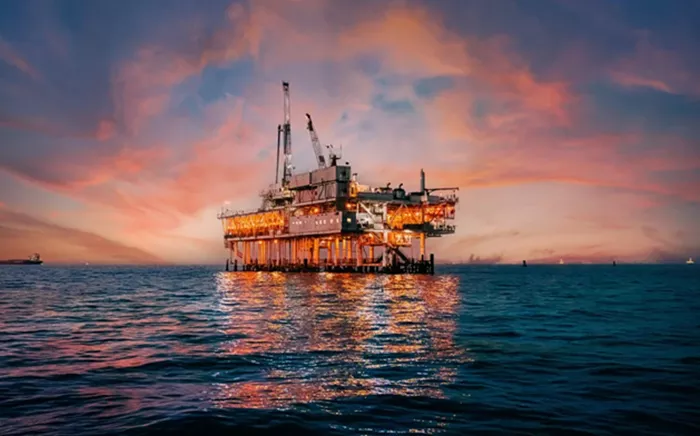The country with the largest proven reserves of crude oil is Venezuela. According to various industry reports, Venezuela holds the most significant amount of proven oil reserves in the world, surpassing other oil-rich nations such as Saudi Arabia, Canada, and Iran.
With an estimated 300 billion barrels of oil, Venezuela surpasses other oil-rich nations such as Saudi Arabia, Canada, and Iran. The majority of these reserves are located in the Orinoco Belt, a vast region known for its heavy crude oil deposits. Despite the enormous potential, Venezuela’s oil industry faces numerous challenges. Political instability, economic sanctions, and inadequate infrastructure have significantly impeded the country’s ability to fully exploit and benefit from these vast reserves. Consequently, Venezuela’s oil production has not matched its potential, affecting the global oil market dynamics.
The Orinoco Belt: A Treasure Trove of Heavy Crude Oil
The Orinoco Belt is a large deposit of heavy crude oil located in the eastern part of Venezuela. This region alone accounts for a significant portion of the country’s proven oil reserves. Heavy crude oil is more challenging and costly to extract and refine compared to lighter crude, but the sheer volume in the Orinoco Belt makes it an incredibly valuable asset.
The oil fields in this region are estimated to contain over 235 billion barrels of heavy crude oil, contributing to Venezuela’s leading position in terms of proven reserves. However, extracting heavy crude oil requires advanced technology and significant investment, which has been difficult to secure given the current economic and political climate in Venezuela.
Challenges Facing Venezuela’s Oil Industry
Despite having the largest proven reserves of crude oil, Venezuela’s oil industry is beset by numerous challenges. The country has been experiencing severe political and economic turmoil for years, which has severely impacted its oil production capabilities. Economic sanctions, particularly those imposed by the United States, have further strained the industry by limiting access to international markets and financial resources.
Additionally, Venezuela’s oil infrastructure is aging and in dire need of maintenance and upgrades, but the lack of investment has led to frequent breakdowns and inefficiencies. As a result, Venezuela’s actual oil production is a fraction of its potential, with output declining sharply over the past decade.
Comparing Venezuela and Saudi Arabia
While Venezuela holds the largest proven oil reserves, Saudi Arabia remains the leading producer and exporter of crude oil. Saudi Arabia’s reserves are estimated to be around 266 billion barrels, slightly less than Venezuela’s. However, Saudi Arabia has a well-developed and highly efficient oil industry, which allows it to maintain high production levels and export large quantities of oil globally.
The country has also invested heavily in advanced technology and infrastructure, ensuring that it can extract and refine oil more effectively than many other nations. Additionally, Saudi Arabia’s political and economic stability has made it a reliable supplier of oil, further cementing its dominant position in the global oil market.
Impact of Venezuela’s Oil Reserves on the Global Market
Venezuela’s vast oil reserves have the potential to significantly impact the global oil market. If the country were able to stabilize politically and economically, and attract the necessary investment to modernize its oil industry, it could dramatically increase its oil production. This, in turn, could lead to a surplus of oil on the global market, potentially lowering prices.
However, the current situation in Venezuela makes this scenario unlikely in the near future. The country’s inability to fully exploit its oil reserves means that other major oil producers, like Saudi Arabia, Russia, and the United States, continue to play a more significant role in determining global oil supply and prices.
The Future of Venezuela’s Oil Industry
The future of Venezuela’s oil industry is uncertain. For the country to fully realize the potential of its vast oil reserves, it will need to address the underlying political and economic issues that have plagued it for years. This includes lifting economic sanctions, securing foreign investment, and modernizing its oil infrastructure.
Additionally, the global shift towards renewable energy and reducing dependence on fossil fuels poses a long-term challenge to all oil-producing nations, including Venezuela. While the country’s oil reserves are a valuable asset, their true value can only be realized if Venezuela can overcome its current challenges and adapt to the changing global energy landscape.
Conclusion
The Potential and Pitfalls of Venezuela’s Oil Reserves
Venezuela’s position as the country with the largest proven reserves of crude oil highlights both the potential and pitfalls of relying on natural resources. However, the numerous challenges facing the country’s oil industry underscore the complexities involved in transforming natural wealth into tangible benefits.
Addressing these issues requires not only technological and financial investments but also substantial political and economic reforms. Until then, Venezuela’s oil reserves remain an underutilized resource with immense but largely untapped potential.

